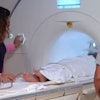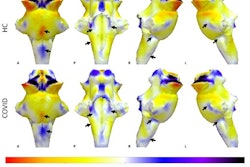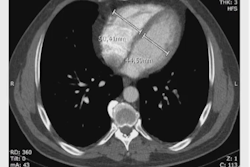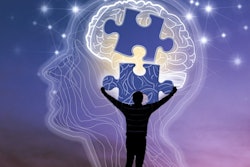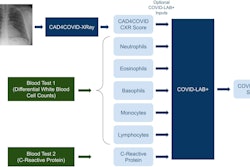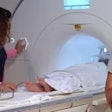MRI scans have revealed long-lasting microstructural brain changes in patients after COVID-19 infections, according to a study to be presented at RSNA 2023 meeting in Chicago.
A team led by Alexander Rau, MD, of University Hospital Freiburg in Freiburg, Germany, found patterns on MRI scans that differed among COVID-19-infected patients who developed long-term symptoms versus those who did not. The findings suggest a pathophysiological basis for long COVID.
"Expression of post-COVID symptoms was associated with specific affected cerebral networks, suggesting a pathophysiological basis of this syndrome" Rau said, in a statement released by the RSNA on November 22.
Up to 25% of patients may develop long COVID, which is characterized by neurocognitive deficits, loss of smell, and fatigue. However, the pathophysiological basis of the condition is poorly understood.
To elucidate brain changes in these patients, the group used diffusion microstructure imaging (DMI), an MRI technique that can detect small volume shifts between microstructural compartments of brain tissue. The researchers compared results among 89 patients with long COVID, 38 patients who had been infected but did not report any subjective long-term symptoms, and 47 healthy controls with no history of COVID-19.
Of the patients with long COVID, more than half had not returned to their previous level of independence or employment due to symptoms, with 26 reporting cognitive impairment based on Montreal Cognitive Assessment tests, nine reporting impaired olfactory performance, and 43 indicating fatigue.
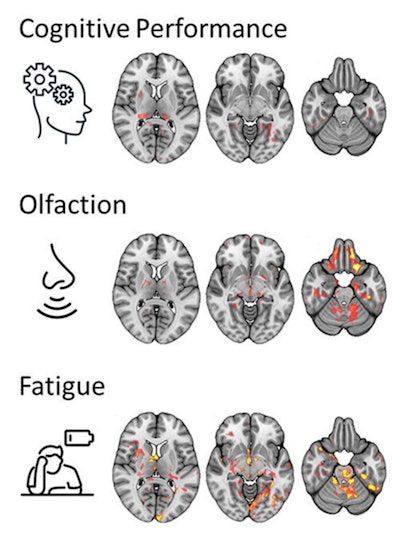 Brain regions in which the microstructure was associated with post-COVID-condition associated symptoms. Image courtesy of Alexander Rau, MD.
Brain regions in which the microstructure was associated with post-COVID-condition associated symptoms. Image courtesy of Alexander Rau, MD.
According to a whole-brain DMI-data analysis, microstructural changes in long COVID patients were positively associated with the severity of initial COVID-19 infections. Further voxel-based analysis among the groups associated these changes with specific cerebral networks significantly linked to cognitive impairment, olfactory performance, and fatigue, the group found.
“To the best of our knowledge, this is the first study comparing patients with long COVID to both a group without history of COVID-19 and a group that went through a COVID-19 infection but is subjectively unimpaired,” Rau noted.
Ultimately, despite these brain imaging findings, it remains unclear why some people develop long COVID while others do not, although previous studies have identified risk factors including female sex, older age, higher body mass index, smoking, preexisting comorbidities, according to the group.
The researchers hope to reexamine the patients in the future, recording both clinical symptoms and changes to the brain's microstructure.

